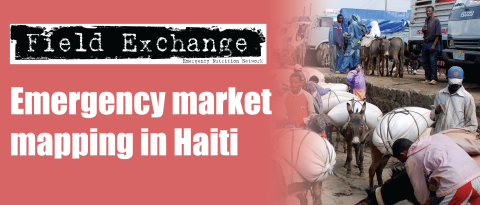Humanitarian Response Index (HRI)
Published:
Summary of report1

Eight billion dollars was invested in humanitarian relief in 2007. The 2008 Humanitarian Response Index (HRI) Report has been released by DARA (Development Assistance Research Associates)2. The top five ranked donors (of good practice, based on Good Humanitarian Donorship) were Sweden, Norway, Denmark, Ireland and the European Commission (EC). The US, which is the largest provider of aid by volume, ranked 15 out of 23. The US was only above average in terms of learning and accountability.
The findings from the HRI 2008 point to five key inter-related areas where wealthy countries can work to improve the quality, effectiveness and impact of humanitarian action:
- Wealthy countries could do more to strengthen their commitments to provide aid in an impartial, neutral and independent manner, not based on other priorities or objectives.
The HRI 2008 findings show that donors are not always providing aid in an impartial, neutral and independent manner, or where it is most needed. Many donors are still biased and influenced by other factors when it comes to allocating resources. Too many crises around the world continue to be a showcase for poor practice, despite all of the lessons from the past. In many places, humanitarian assistance continues to be compromised by wealthy countries' political, economic, or security agendas, while elsewhere other crises are forgotten and neglected. - Wealthy countries should contribute to efforts to improve the quality and use of needs assessments to determine who needs assistance, where, and of what kind.
The HRI 2008 findings also suggest that there are gaps in the area of needs assessments that should be addressed to ensure that humanitarian assistance is provided in accordance with needs. The findings show that there are disparities in the quality and consistent use of needs assessments. If humanitarian donorship is truly to be needs based, donors could contribute to improving global needs assessments tools with clear transparent criteria on how to allocate resources at global level for a more equitable response between crises. Donors could support their humanitarian partners in funding and improving harmonised needs assessments at the country level. Promoting a continual process of monitoring the evolving context and assessing how needs change, as well as making available the necessary flexible funding to adapt responses accordingly, are also suggested. Donors could therefore help promote a more nuanced position that balances the need for rapid assessments with the time needed to engage affected populations in identifying their evolving needs. - Wealthy countries could do much more to harmonise and link relief efforts to early recovery and longer term development strategies.
The HRI 2008 findings confirm a perennial challenge in the humanitarian sector - how better to link relief to recovery and long term development, and strengthen the resilience of populations affected by crises. Humanitarian agencies often struggle to find appropriate means to achieve a balance between meeting short term needs and laying the foundation for recovery and development. The HRI findings show that some donor policies and procedures can accentuate the gap between relief, recovery and development, rather than facilitating more integrated and harmonised efforts. Similarly donor procedures can facilitate or impede efforts to engage effectively local communities in defining and implementing programmes that meet their needs. - Wealthy countries should invest more resources to strengthen the humanitarian system's capacity at all levels.
The HRI 2008 findings indicate that in general, donors could do much more to prioritise capacity building in the humanitarian system as an integral part of their assistance. For example, donors can do more to fund and prioritise efforts to strengthen community level and government capacity to reduce risks, and prepare for and respond to a crisis. At the same time, there is a deficit in donor support for strengthening the capacity of humanitarian organisations that make up the system. Without investing in areas such as contingency planning and standing operational capacity, the system will be hard pressed to deal with the increasing demands placed on it. Donors need to approach this issue strategically, and consider the benefits of investing in building the capacity of the whole system - not just parts of it - and do so in a holistic way that encourages harmonisation and coordination among different levels. This might include increased support for the United Nations (UN) humanitarian reform process to ensure that it is strengthened and expanded to include other components of the humanitarian system - including means to integrate more closely with existing capacities at the national and local level. - Wealthy countries should assume more responsibility for ensuring implementation of international standards and good practice, and for improving accountability and performance in humanitarian action.
Donors could take a more active leadership role in promoting a shared understanding of good practice in humanitarian action. The HRI findings show that there is inconsistent application of the international laws, principles and standards that guide and inform effective humanitarian action, especially those that attempt to ensure that people affected by crisis receive the support, protection and assistance they require. Collectively donors need to renew efforts to ensure these tools are used consistently, particularly in conflict situations, where such laws are often needed most, but most frequently ignored by some donors themselves.
Imported from FEX website
Published
About This Article
Issue:
Article type:
Original articles
Download & Citation
Recommended Citation
Reference this page
Close
n/a. Humanitarian Response Index (HRI).
Citation Tools
Download to a citation manager
Close
The below files can be imported into your preferred reference management tool, most tools will allow you to manually import the RIS file. Endnote may required a specific filter file to be used.


